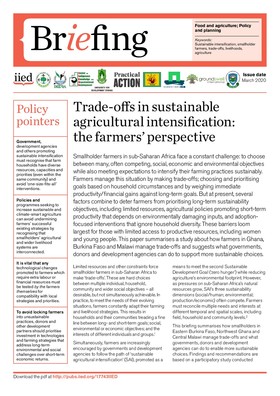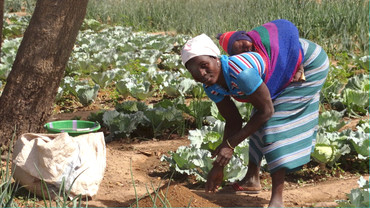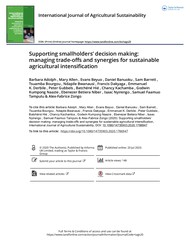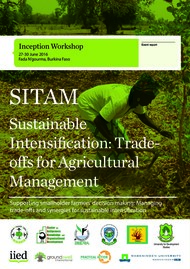Trade-offs in sustainable agricultural intensification: the farmers’ perspective

Smallholder farmers in sub-Saharan Africa face a constant challenge: to choose between many, often competing, social, economic and environmental objectives while also meeting expectations to intensify their farming practices sustainably. Farmers manage this situation by making trade-offs; choosing and prioritising goals based on household circumstances and by weighing immediate productivity/financial gains against long-term goals. But at present, several factors combine to deter farmers from prioritising long-term sustainability objectives, including limited resources, agricultural policies promoting short-term productivity that depends on environmentally damaging inputs, and adoption-focused interventions that ignore household diversity. These barriers loom largest for those with limited access to productive resources, including women and young people. This paper summarises a study about how farmers in Ghana, Burkina Faso and Malawi manage trade-offs and suggests what governments, donors and development agencies can do to support more sustainable choices.
Cite this publication
Available at https://www.iied.org/17743iied






